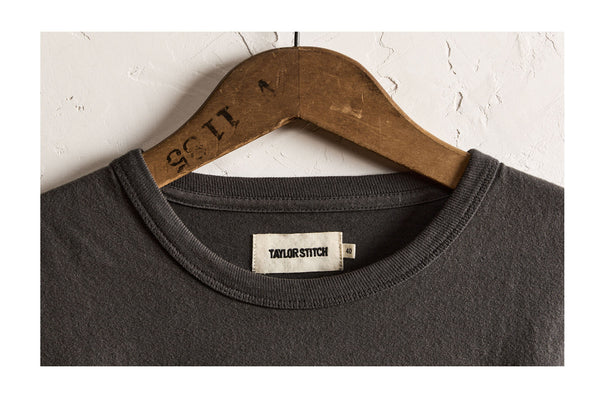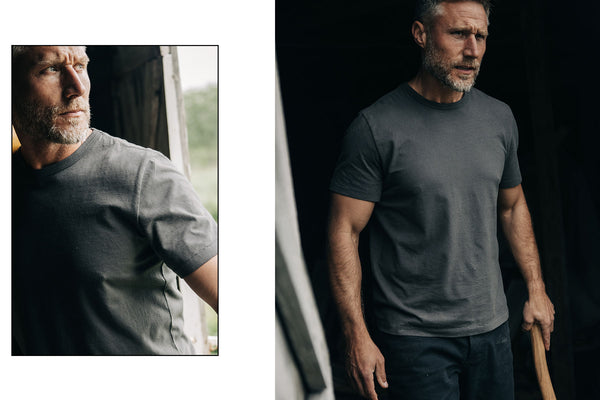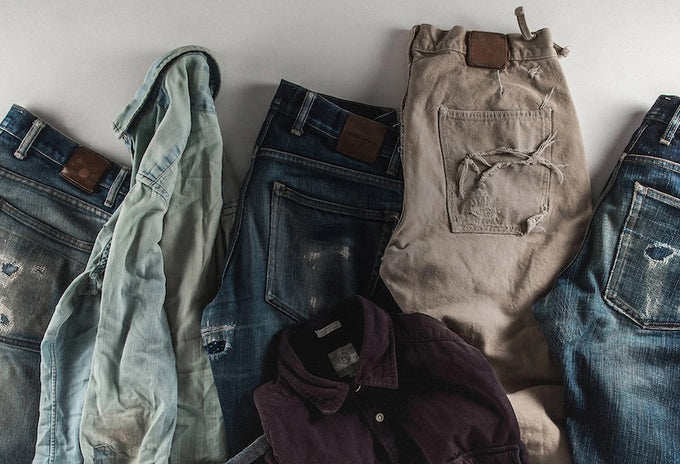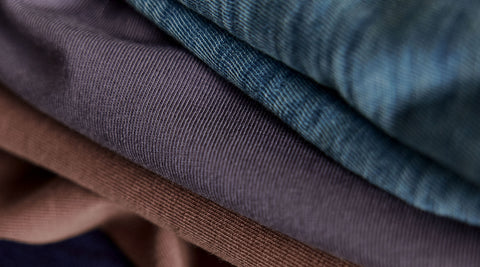Cotton fibers account for more than 50% of the global textile market. We sleep on it, dry off with it after our shower, and work, hike, and lounge in it from sunup to sundown. In many cotton-producing countries, it’s known as “white gold.” But there’s a darker side to the cotton industry, one that—seeing as you’re likely wearing cotton right now—is well worth understanding.

It’s been eight years since we began our transition to using 99% organic cotton (most of the remaining 1% being deadstock or recycled materials). While we’re constantly seeking more ways to reduce the environmental impact of everything we do, it’s a step we’re mighty proud to have taken. This article aims to help you understand the good, bad, and ugly of the cotton industry, empowering you to shop more consciously the next time you need a new set of jeans.
The Problem With Conventional Cotton
Conventional cotton poses a three-pronged problem: the brutal environmental impact of toxic pesticides and soil denudation, the public health concerns posed by the use of those same heavy chemicals, and the economic disenfranchisement of small-scale farmers in lower to middle-income countries (LMIC).
Conventional cotton production is one of the most pesticide-dependent industries on the planet. Sold by companies like Monsanto, these pesticides often contain chemicals banned in most Western countries and are used by farmers without the necessary safety training. All of this leads to chemical runoff in local water systems and air pollution that can have a devastating effect on natural ecosystems and the human communities therein.
Cotton is also an exceedingly thirsty crop, demanding thousands of gallons of water to produce enough for a single tee shirt. Despite this, it is primarily grown in arid countries where farms depend on “blue water” (irrigation), which is diverted from local communities that, in many cases, are experiencing a shortage of fresh drinking water.
Lastly, non-organic cotton relies upon GMO seeds (another product of companies like Monsanto) that are designed to resist the bollworm, a pest that can wreak havoc on a farmer’s yield. The problem is that these GMO plants cannot be re-seeded, so farmers have to buy more seeds after each harvest, and every year, the soil becomes more denuded, forcing them to expand. The combined, persistent cost of pesticides (for offenders other than the bollworm) and new GMO seeds often trap smaller farmers in a revolving door of debt.

What Is Organic Cotton?
Unlike regular cotton, Organic Cotton is grown from non-GMO seeds and without the use of pesticides. Our organic cotton suppliers are also certified by The Global Organic Textile Standard (GOTS). This organization covers everything from processing and manufacturing to packaging and distribution to ensure that environmental and social standards are respected at every stage.
Is Organic Cotton Worth It?
The short answer is a resounding “yes.” Organic cotton relies more heavily on rainwater and natural water sources, resolving the lion’s share of water-waste issues, and it doesn’t leach harmful chemicals into the soil, air, and water systems. Plus, organic cotton seeds are cheaper than GMO seeds, create plants that can be reseeded after every harvest, and yield a harvest that can be sold at a higher profit margin, offering farmers a more sustainable economic situation.

Shopping For Organic Cotton Clothing
Like most folks, we’ll always consider function, craftsmanship, and design when shopping for selvage denim, tee shirts, or anything else we plan on wearing for the next several years. But with this information, we can hone our preferences even further, ensuring the gear we love hasn’t harmed the planet or its people along the way.
As we said, we’re pretty proud of our commitment to using organic cotton wherever possible. From men's shirts to selvedge denim and organic cotton t-shirts, our roster is packed with durable, Responsible staples to help you build a killer wardrobe without the heavy toll on the environment (or your conscience). So the net time you’re deciding between organic cotton and the conventional stuff, you now know why organic cotton clothing is well worth the effort.
Interested to learn more about our other fabrics? Check out the rest of our Fabric Stories:
















